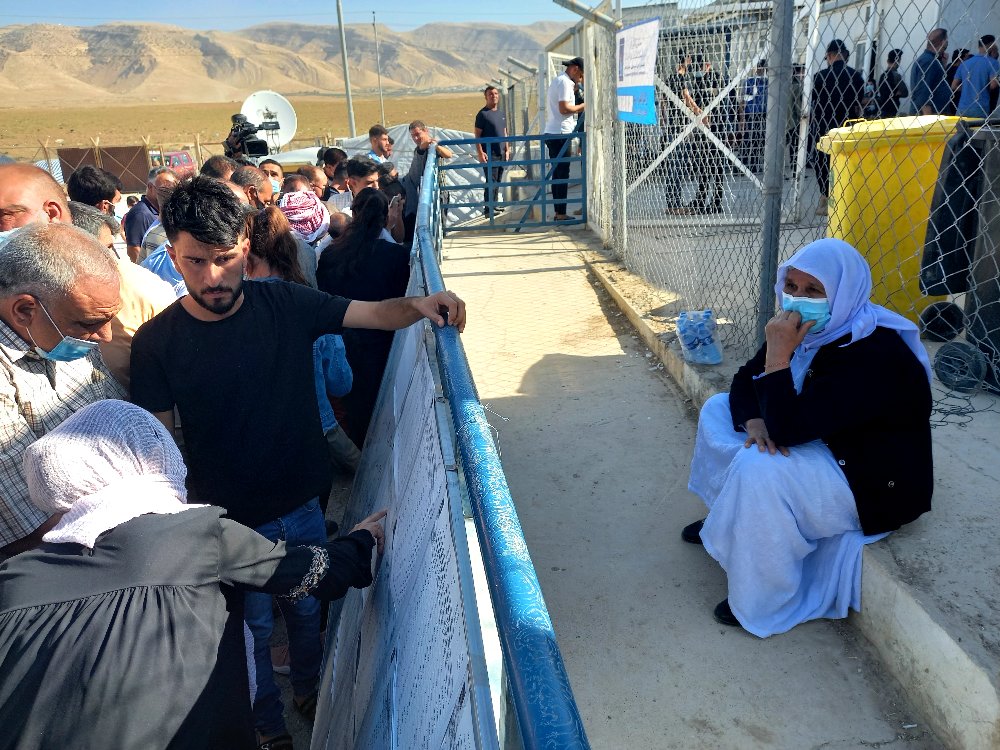About 26,000 Internally Displaced Persons IDPs, primarily Ezidis (Yazidis), have registered to vote inside the camps of Duhok northern province while another 210,000 displaced in the province, and those eligible to vote, have to return to their homes to cast their votes for not registering in the camps.
The Independent High Election Commission (IHEC) has established 22 polling stations in the camps for the displaced who previously registered to vote. However, there is no solution for those who did not comply with the commission's request.
As a result, the majority of displaced will need to return home on election day to vote, as they will not be able to do so otherwise.
Seve Rasho, an Eazidi IDP from Sinjar living in Bersiv camp for 11 years, returned to vote in the previous elections in the Sinuny sub-district. However, she is unsure of where to vote this time.
"When the election commission asked us to complete our registration at the Duhok office to vote in the IDP camps, I did so and submitted the necessary documents."
According to the Kurdistan Regional Government KRG's Migration and Crisis Response Office, 55,000 families, totaling 210,000 individuals, are still displaced in Duhok province. Of these, only 110,000 are in camps, with the remaining 100,000 families integrated into the host community.
Only 25,986 people have registered to vote at the 22 polling stations, leaving other displaced with no option but to risk losing their votes or return home on election day.
Ahmad Qasim, a resident of Cham Mishko camp, returned to Shingal (Sinjar) to vote in the previous elections but is unsure of where to vote this time.
"Last May, I submitted my registration form to the Election Commission committees, provided my fingerprints, and all necessary information. I visited the camp administration two days ago."
Ahmad is one of many who have applied to vote in the camps but are unsure of their voting location.
Overall, there is a widespread fear that thousands of Yazidi displaced will be excluded from the democratic process of electing their representatives while waiting for the return of their polling stations.
In the previous elections, when Nineveh province had eight constituencies, the lowest turnout was only 30 percent in Sinjar, the constituency with the largest number of displaced.
"Last time, it took me two hours to get to Shingal and vote. It was really challenging. We cannot return to Shingal in the same way," Ahmad expressed.
"The financial situation of the displaced is dire, and most cannot afford to spend 50,000 dinars (USD35) to return to their homes on election day," Seve added.
Khalid Abbas, head of the Duhok branch of the (IHEC), stated that 26,000 voters have registered.
In the 2021 parliamentary elections, there were 120,000 displaced voters, mostly in Duhok province.
"The displaced were given the opportunity to register, but if they did not, they will not be able to vote in the camps," Pir Dayan Jaafar, director of the Kurdistan Regional Government's Migration and Crisis Response Office, mentioned.
"We will assist those who wish to return to their homeland to vote," he assured.





